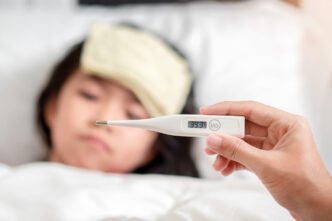Gynaecological tumours in children and teens are rare but serious. From ovarian lumps to fertility worries, these conditions can drastically affect their lives if not detected early. Here’s what parents need to know about the symptoms, the risks, and the future fertility concerns for young patients.
WORDS LIM TECK CHOON
 FEATURED EXPERT FEATURED EXPERTDR SHONA ALISON EDMONDS Consultant Paediatric Surgeon Sunway Medical Centre |
Most people will assume that gynaecological tumours affect only adult women.
However, these tumours — which affect the reproductive system — can also appear in children and teenagers.
- The most common type in young patients is an ovarian tumour.
- Some tumours are benign (non-cancerous), while others are malignant (cancerous).
- Even when not cancerous, they can cause pressure, pain, or complications that need urgent care.
Dr Shona Alison Edmonds explains that although these tumours are rare, her team still sees several cases every year.
“Most patients are infants through teenagers, and the impact on their health and families is significant,” she says.
SYMPTOMS TO WATCH OUT FOR
Symptoms often start small and are easy to miss.
According to Dr Shona, some early red flags include:
- Chronic constipation, especially if it doesn’t get better with diet changes or laxatives.
- Frequent urination without a urinary tract infection; this can mean a tumour is pressing on the bladder.
- Abdominal bloating or swelling that doesn’t go away. A child may complain of a “hard stomach”, fullness, or discomfort.
- Feeling a lump or unexplained stomach pain.
“These vague symptoms are often brushed off or mistaken for other issues,” says Dr Shona. “But if they persist, it’s best to check with a doctor. An ultrasound is usually the first simple step.”
Fertility Concerns?Dr Shona stresses that while fertility is important, survival always comes first. “We never compromise on treating the tumour, but we do explore fertility preservation when possible,” she explains. Options depend on age:
|
ADVICE FOR PARENTS
Paediatric gynaecological tumours may be rare, but they are real — and they need proper specialist care.
Dr Shona’s advice is clear:
- Don’t dismiss persistent symptoms.
- Don’t delay seeking treatment.
- If in doubt, get a second opinion from a qualified medical practitioner.
| This article is part of our series on children’s health, growth, and development. |













